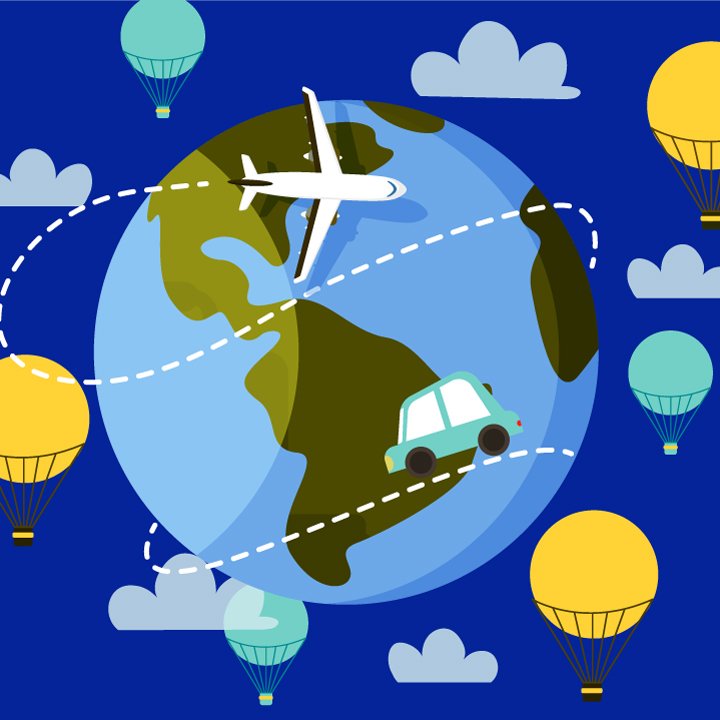By: Rebecca Rosbourgh
Travelers are dusting off their passports, getting ready to hop on flights and itching to explore new destinations, but the world is a much different place now than the one we remember from 2019. With the holidays around the corner, travel planning is in full swing. The behaviors we saw and knew from consumers before the pandemic can no longer drive the way we think about consumers. Everything has changed and while the future of travel looks promising in the post-pandemic world, the mindset for marketers has to shift.
Here are the top 5 insights we found from our research about the future of travel:
- Travel research has changed drastically among globetrotters
- Safety and distance now top the list of travel concerns
- Consumers want to travel domestically and want luxury experiences
- Road trips made a comeback and are sticking around
- Travel marketers should use these changes to find the right audience
Research and then research some more
When planning a trip where do you usually start? Maybe you begin by searching for the most interesting destination with a beach or the best prices for a hotel. That’s the way we used to go about planning for a trip and that’s also how advertisers found us. But these considerations have changed drastically as a result of the pandemic and a deeper dive into these new behaviors is needed.
So, what are people searching for now when they decide to plan a trip? They are looking at a completely different set of parameters, the first big one is distance. How far from home are they willing to venture? According to the data in MiQ’s latest report, The Unlocked World? travelers are choosing to stay domestic. We found that 70% of travelers from the US, China and Australia are opting to not leave their home countries. That’s a lot of people that are looking to travel short distances but still explore a new-to-them locale.
Trip planners are also researching categories that are very pandemic-focused. We see people looking for vaccination rates in the areas they will be visiting, searching for safe accommodations, and requesting flexibility for bookings. The possibility of a refundable booking if the trip needs to be cancelled is a top priority now. Offering piece of mind to a worried traveler can be a great way to attract them to your brand.
New travel trends
A big pandemic travel trend that seems to be sticking around is the road trip, especially for travelers in the US and Canada. Over the past six months, we saw a correlation between the vaccination rates and interstate travel. If people are to continue their vacationing domestically and by car then marketers should plan to put their focus on reaching these road-trippers.
Travel interest is growing, and growing very fast. We found that 42% of people around the world plan to travel in the next six months and that rises to 60% in the next 12 months. Asian and European travelers are looking to spend more and make those vacations luxurious. More people have confidence that the pandemic risk is less and they are looking to opt for premium travel experiences. Marketers can expect spending to be higher to create memorable experiences.
With a resurgence in interest around travel, we found that over a third of audiences are still waiting to see how things are playing out with the pandemic even though they have started to plan vacations. They haven’t booked anything yet but are likely to continue their research, looking for a great deal. Marketers need to be aware of this longer term of decision making.
Know where your audience is— and where they want to go
Planning a trip is not something that happens with one internet search. You’ll have many chances to reach your audience when they are planning a trip, but you have to know where they are located. Understanding where they are starting from is the key to a great travel campaign. If your customers are in a big city and are looking for deals for a mountain getaway, you need to know that. Understanding preferences and identifying the audience can benefit your campaigns.
As the end of 2021 approaches and holiday travel ramps up, marketers can benefit from understanding these trends to reach the right consumers. Programmatic omnichannel advertising can help advertisers to offer personalization and insights to help boost the chances of conversion for their travel campaigns. Working with a partner can help you to identify your audience in this new world of travel planning.






